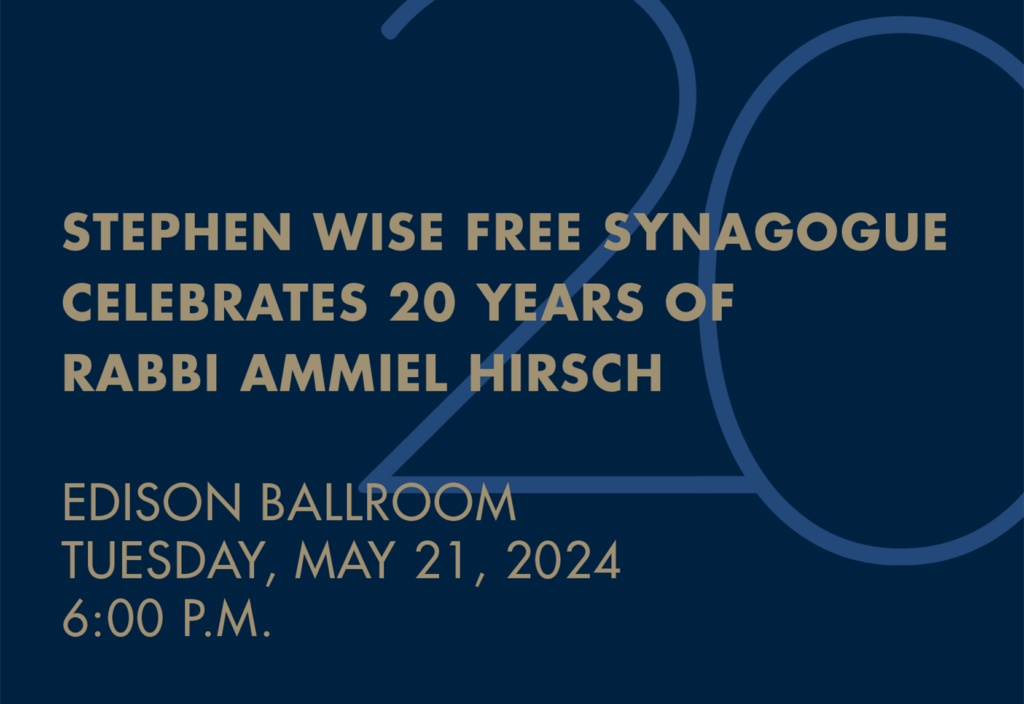“We’d like to start fresh, but that is impossible,” says Rabbi Samantha Natov. “During these High Holy Days, we can learn from our mistakes and rebuild out of regret. Our regrets give us raw material to start with as we move towards a sense of wholeness.”
On Yom Kippur, Rabbi Shira Gluck discussed Parashat Nitzavim, in which Moses called up the Israelites to be “fully present” to affirm their covenant with God. “Nitzavim calls to each one of us to assume our place in the assembly of Israel. As your newest rabbi, I am here to help each of you find your place.”
On Yom Kippur, Rabbi Ammiel Hirsch discusses the ways we seek to escape – and give meaning and purpose – to the anxiety of life. Some choose the path of science and technology, but does it liberate or paralyze? Some take the opposite approach: resignation. “There is a third way,” he says, “the Jewish way: finding meaning, purpose and joy in the world as it is, and ceaselessly working to create a better world.”
On Yom Kippur, Rabbi Shira Gluck discussed Parashat Nitzavim, in which Moses called up the Israelites to be “fully present” to affirm their covenant with God. “Nitzavim calls to each one of us to assume our place in the assembly of Israel. As your newest rabbi, I am here to help each of you find your place.”
With new political outrage, scandals, lies, and shootings every day, it’s understandable that some of us might suffer from moral fatigue, Rabbi Ammiel Hirsch said on the eve of Yom Kippur. “The more sensitive we are, the greater the frustration. But there is only one response in Judaism: To fight back.
In his Rosh Hashanah sermon, Rabbi Ammiel Hirsch spoke about antisemitism from both sides of the aisle, slamming the right for excusing hate speech and the left for hypocrisy on Israel, and criticizing the Reform movement for its complacency.


